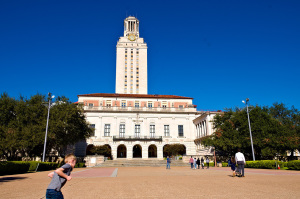Vatican Says Identifying Adam and Eve Is Matter of Religious Belief, as Scientists Search for First Humans
In response to recent scientific research seeking to trace back the genetic tree of humans and identify the first people, a top Vatican official said identifying the historical Adam and Eve remains a matter of religious belief.
"Scientific investigations have no means to identify Adam and Eve and to sequence their genomes. Therefore, identification of Adam and Eve remains a matter of religious belief," Werner Arber, a Nobel prize winner and the current president of The Pontifical Academy of Sciences, told FoxNews.com on Thursday.
The comments come in response to contrasting scientific studies seeking to find just how old the first humans on Earth were. Some, like a recent study by Eran Elhaik from the University of Sheffield, have argued that modern humans emerged from Africa close to 200,000 years ago. While others, like a 2013 study from the Arizona Research Labs at the University of Arizona, insisted that the human Y chromosome came about much earlier than that.
"Our analysis indicates this lineage diverged from previously known Y chromosomes about 338,000 years ago, a time when anatomically modern humans had not yet evolved," said Michael Hammer, an associate professor in the University of Arizona's Department of Ecology and Evolutionary Biology.
While the supposed first bearer of that Y chromosome has been dubbed "Adam," a reference to the biblical figure in Genesis, some researchers like Joe Pickrell from the New York Genome Center have warned that the term is misleading.
"At some point, a population geneticist had the clever idea of calling this common ancestor 'Adam,'" Pickrell wrote. "This is a biblical allusion, of course, and it probably was good for a bit of amusement a couple of decades ago. But it's time to retire this metaphor – not only because it confuses the public … but because it confuses even practicing human population geneticists."
Christian apologists have long debated the history behind Adam and Eve.
In an article titled "Adam and Eve as Historical People, and Why It Matters," John Collins, a Christian scientist and professor of Old Testament at Covenant Theological Seminary in St. Louis, Mo., wrote:
"The best way to account for both the biblical presentation of human life and our own experience in the world is to suppose that Adam and Eve were real persons, and the forebears of all other human beings."
The Christian scientist added: "Some of the factors that lead to questioning a real Adam and Eve include the perceived impossibility that we could be done long ago; the parallels between the themes in Genesis and what we find in stories from other Ancient Near Eastern cultures (which led some to conclude that Genesis is just as 'mythical' as these other stories are); and advances in biology that seem to push us further away from any idea of an original human couple through whom sin and death came into the world."
Biblical literalists like Creation Museum CEO and President Ken Ham have maintained that Adam and Eve were real people and beliefs to the contrary compromise "God's Word with man's fallible beliefs about evolution, millions of years, etc."
A report by Catholic Online on the recent scientific research and the question around Adam and Eve stated that whether the first humans were created by God, or by a process of natural human evolution guided by God, is still a matter of great debate.
"What is also certain, is that we are highly unlikely to ever find their remains, or the specific genetic evidence that identifies them as such," the Catholic publication concluded.





























